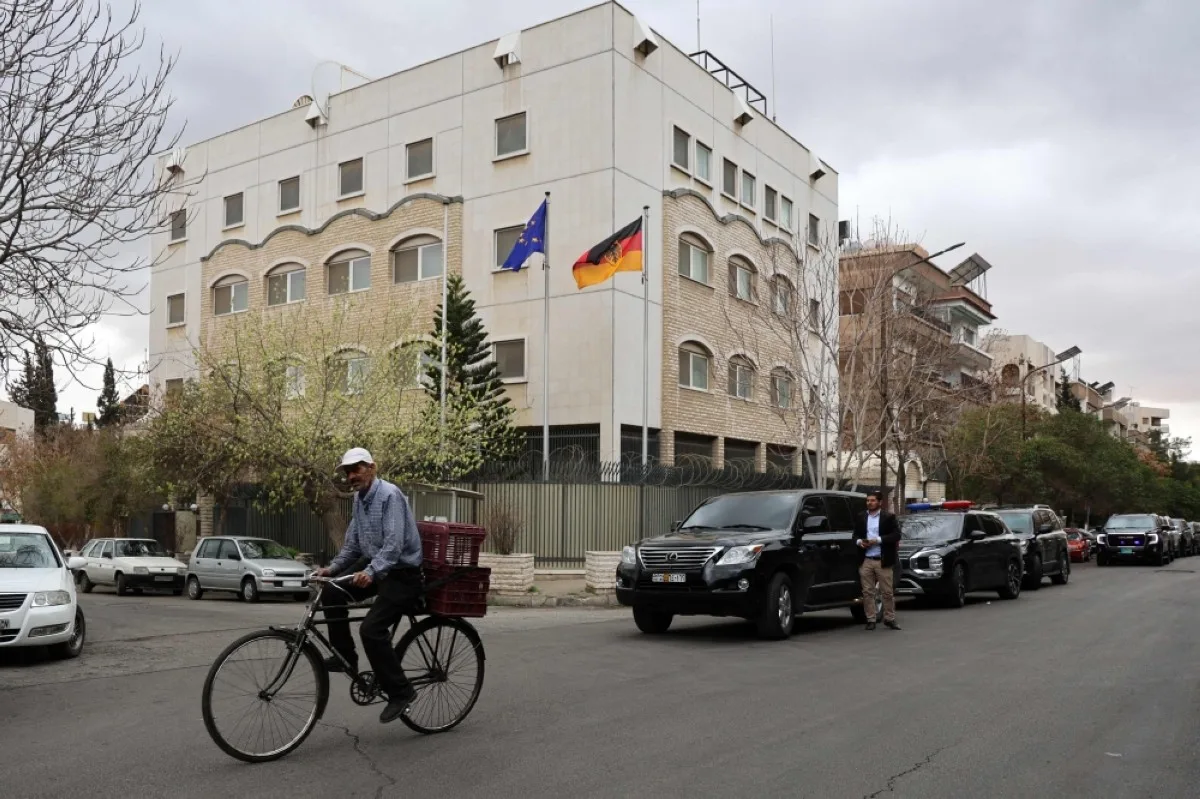Germany Reopens Embassy in Syria: A Step Toward Stability and Reconstruction

Germany has officially reopened its embassy in Syria, marking a sizeable step in re-setting up diplomatic ties with the struggle-ravaged nation. German Foreign Minister Annalena Baerbock made the assertion all through a one-day visit to Damascus on Thursday, signaling Germany’s rationale to aid Syria’s reconstruction efforts while urging balance and responsibility from its period in-between leadership.
Reopening After a Decade of Conflict
The German embassy in Damascus had been closed on account that 2012 due to the Syrian civil struggle. However, in the wake of President Bashar al-Assad’s fall over 3 months in the past, Germany has taken the initiative to restore its diplomatic presence. Baerbock’s go to additionally follows sectarian massacres on Syria’s Mediterranean coast that left extra than 1,500 human beings useless, mainly from Assad’s Alawite minority.
Baerbock acknowledged that the violence had led to a “huge lack of believe” and condemned the focused killings of civilians as “a horrible crime.” She called on Syria’s transitional authorities, led through meantime President Ahmed Al-Sharaa, to keep manage over various armed factions and hold perpetrators responsible. However, she emphasised Germany’s commitment, alongside European partners and the United Nations, to assisting in Syria’s rebuilding technique.
Diplomatic and Financial Commitment
During her visit, Baerbock held meetings with President Al-Sharaa and meantime Foreign Minister Assaad Al-Shibani. Germany currently pledged €300 million ($325 million) in reconstruction useful resource as part of a donor convention that collectively accumulated €5.8 billion in assist for Syria’s healing.
A German foreign ministry supply showed that the reopened embassy in Damascus will to begin with operate with a small diplomatic team. However, for protection motives, consular affairs and visa services will stay controlled from Beirut, Lebanon. Several different European countries have additionally resumed their diplomatic activities in Syria, with Italy already running its embassy, while France and Spain have raised their flags over their respective embassy homes but haven’t begun to resume consular services.
Germany’s Interests in Syria
Germany’s foreign ministry emphasized its “paramount interest in a strong Syria” and stated that having diplomats on the floor might help facilitate stabilization efforts. The ministry believes this can allow for progressed diplomatic engagement, particularly in promoting an inclusive political transition that considers the hobbies of all populace organizations.
Furthermore, Germany targets to re-engage with Syrian civil society and reply without delay to rising crises. The ministry underlined that any “new begin” among Syria and Europe depends at the Syrian management ensuring safety and equal rights for all citizens, no matter religion, gender, or ethnicity. Many Syrians continue to be involved approximately their safety within the evolving political landscape.
Ongoing Security Challenges
Despite efforts to stabilize Syria, the country continues to face security threats. Earlier this month, Syria’s coast witnessed its deadliest outbreak of violence considering Assad’s overthrow, with over 1,500 civilians killed, in line with the Syrian Observatory for Human Rights. Many of the victims had been from the Alawite community, including to fears of sectarian reprisals.
Additionally, the Zionist entity has released masses of strikes on army targets in Syria, bringing up concerns that weapons may want to fall into the arms of corporations it considers jihadist. It has also stationed troops in a UN-patrolled buffer area at the Golan Heights.
Baerbock counseled that foreign involvement in Syria has historically “introduced not anything however chaos” and advised all actors to expose military restraint. She warned that persevered attacks on Syrian territory should undermine the country’s fragile balance and disrupt efforts towards a unified national authorities.
The Path Forward
As Germany re-establishes its diplomatic presence, its consciousness will continue to be on fostering balance and assisting Syria’s reconstruction. However, the country’s meantime management faces huge challenges in gaining the believe of its populace and the global community. The achievement of Syria’s transition will depend on its potential to keep security, shield minority rights, and enforce a honest political manner.
With European nations gradually resuming their diplomatic missions, Syria stands at a crossroads. Whether the country can circulate toward long-term stability or continue to face inner strife will rely on the effectiveness of its governance and the broader global reaction. Germany’s engagement, in conjunction with multilateral help, may play a essential role in shaping Syria’s future.

